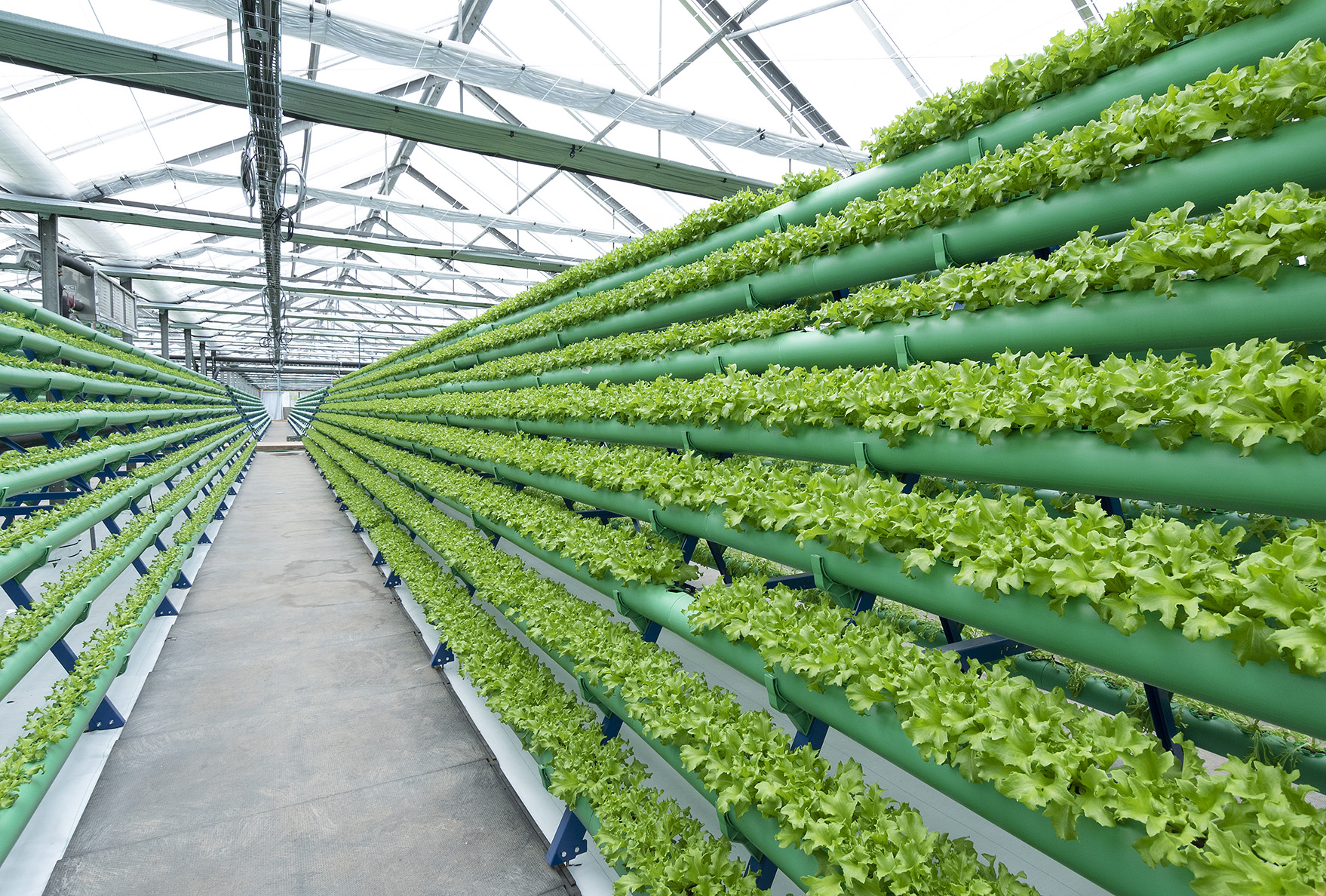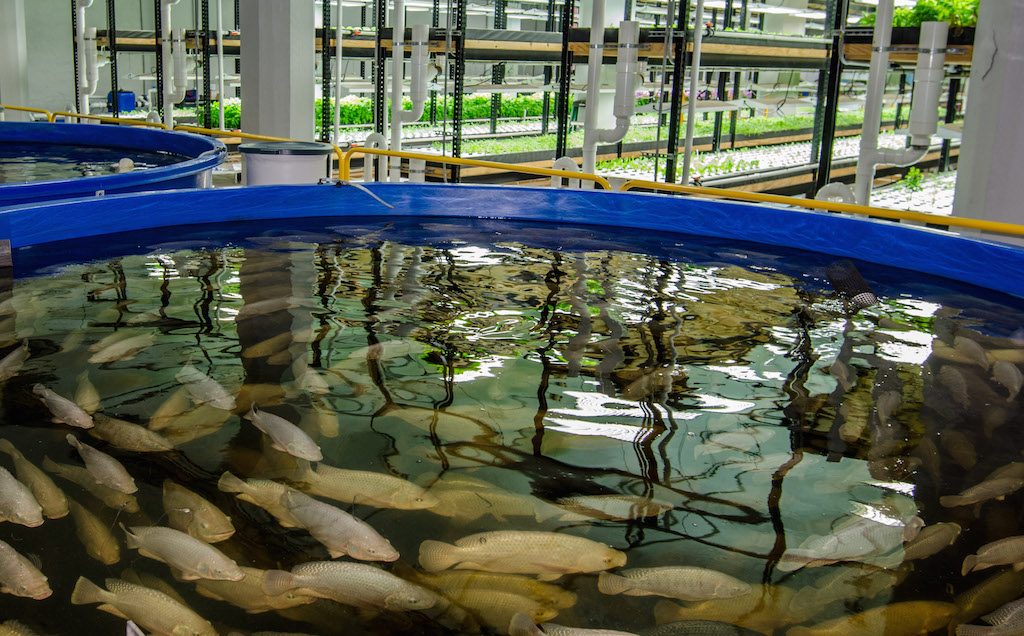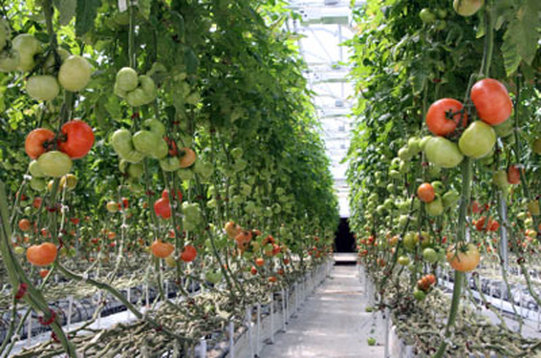Aquaponics Sustainability and Environmental Impact
Aquaponics Sustainability and Environmental Impact
 One of the most apparent environmental benefits of aquaponics is its efficient use of water. Traditional soil-based agriculture can be water-intensive, often leading to over-extraction of groundwater or diverting rivers and streams. In contrast, aquaponics recirculates water within the system, reducing the overall water consumption significantly. The water used in the fish tanks is rich in nutrients, which is then delivered directly to the plants, making it an extremely efficient method for growing crops.
One of the most apparent environmental benefits of aquaponics is its efficient use of water. Traditional soil-based agriculture can be water-intensive, often leading to over-extraction of groundwater or diverting rivers and streams. In contrast, aquaponics recirculates water within the system, reducing the overall water consumption significantly. The water used in the fish tanks is rich in nutrients, which is then delivered directly to the plants, making it an extremely efficient method for growing crops.
 Conventional farming often relies on chemical fertilizers and pesticides, which can contaminate soil and water, leading to adverse ecological effects. In aquaponics, the nutrient-rich fish waste provides a natural fertilizer for the plants, eliminating the need for synthetic chemicals. This reduces the environmental impact associated with the production and runoff of harmful agricultural chemicals.
Conventional farming often relies on chemical fertilizers and pesticides, which can contaminate soil and water, leading to adverse ecological effects. In aquaponics, the nutrient-rich fish waste provides a natural fertilizer for the plants, eliminating the need for synthetic chemicals. This reduces the environmental impact associated with the production and runoff of harmful agricultural chemicals.
Harnessing the power of beneficial insects is a natural and sustainable solution in aquaponics farming, effectively combating harmful pests without the need for chemical pesticides, promoting a healthier and more balanced ecosystem. These practices ensure that the fish is protected from being exposed to harmful chemicals.

 Aquaponics systems can be designed to maximize space utilization. Vertical farming techniques, for example, allow growers to stack multiple levels of plants, making efficient use of limited land or indoor space. This efficient land use minimizes habitat disruption and land conversion for agriculture.
Aquaponics systems can be designed to maximize space utilization. Vertical farming techniques, for example, allow growers to stack multiple levels of plants, making efficient use of limited land or indoor space. This efficient land use minimizes habitat disruption and land conversion for agriculture.
 By focusing on native or sustainable fish species in aquaponics systems, growers can contribute to the conservation of aquatic biodiversity. Avoiding the use of overexploited or endangered species helps maintain the ecological balance in aquatic ecosystems.
By focusing on native or sustainable fish species in aquaponics systems, growers can contribute to the conservation of aquatic biodiversity. Avoiding the use of overexploited or endangered species helps maintain the ecological balance in aquatic ecosystems.
In traditional aquaculture, fish waste can accumulate and pollute water bodies, causing harm to aquatic life. In aquaponics, the plant roots act as a natural filter, removing excess nutrients from the water and preventing pollution. This environmentally friendly aspect of aquaponics minimizes its impact on local aquatic ecosystems.
Aquaponics systems can operate year-round, irrespective of seasonal weather changes. This continuous production helps stabilize the food supply, reducing the need for large-scale food storage, which can be energy-intensive and environmentally costly.
In conclusion, aquaponics offers a sustainable and environmentally friendly approach to food production that aligns with the principles of responsible agriculture. By conserving water, reducing chemical use, lowering the carbon footprint, and minimizing habitat disruption, aquaponics is a compelling example of how innovative farming practices can contribute to a more sustainable and environmentally conscious future.
As individuals and communities seek ways to reduce their impact on the environment, exploring and adopting aquaponics can be a meaningful step towards a more sustainable and eco-friendly food production system. This revolutionary method not only benefits our planet but also provides a source of fresh, healthy, and locally grown produce for our communities.

